Arigatou - Judo Term Explained
Share

Do you ever wonder about the true meaning behind the Japanese word 'Arigatou'? Well, wonder no more!
'Arigatou' is a word filled with deep gratitude and appreciation.
It's a casual and friendly way to say 'thank you' in Japan. Like 'thanks' in English, 'Arigatou' is used among family, friends, and peers.
If you want to show more respect, say 'Arigatou gozaimasu.' In this article, we'll explore the power of gratitude in Japanese.
Get ready to discover the meaning of 'Arigatou'!
Key Takeaways
- 'Arigatou' is a Japanese word that means 'thank you' and is commonly used among family members, friends, partners, and people of the same age or younger.
- The correct pronunciation of 'arigatou' is 'ah-ree-gah-toh'.
- If you want to be more polite, you can use the phrase 'arigatou gozaimasu,' which is a more formal way of saying 'thank you'.
- 'Konnichiwa' is a Japanese greeting that means 'hello,' 'good afternoon,' or 'good day' in English and is typically used from around 10:00 or 11:00 o'clock in the morning until 5:00 or 6:00 o'clock in the evening.
History of 'Arigatou
You can learn about the history of 'Arigatou' in this section.
The origin of 'Arigatou' can be traced back to ancient Japanese culture.
It has been widely used throughout history as a way to express gratitude.
Over time, variations of 'Arigatou' have developed, reflecting different regional dialects and cultural contexts.
It's an essential expression in Japanese society, commonly heard in everyday conversations.
Understanding the history of 'Arigatou' helps us appreciate its significance in Japanese culture.
Cultural Significance of 'Arigatou
In Japanese society, several cultural significances of 'Arigatou' reflect its importance as a way to express gratitude.
It's deeply ingrained in cultural customs and social etiquette.
Understanding and using this phrase is essential for effective cross-cultural communication.
Learning the proper expressions of gratitude, such as 'Arigatou,' is crucial in language learning and shows respect for Japanese culture.
Different Ways to Say 'Thank You' in Japanese
Here are four different ways to say 'thank you' in Japanese:
- arigatou
- doumo arigatou
- arigatou gozaimasu
- doumo arigatou gozaimasu.
'Arigatou' is a casual way of expressing gratitude and can be used in different situations, such as among family and friends.
If you want to be more formal, you can use 'arigatou gozaimasu.'
Common responses to 'arigatou' include 'douitashimashite' or 'iie, iie.'
To pronounce 'arigatou' correctly, say 'ah-ree-gah-toh.'
Similar phrases to 'arigatou' in other languages include 'gracias' in Spanish and 'merci' in French.
When and How to Use 'Arigatou
Using 'arigatou' is appropriate when casually expressing gratitude, such as thanking friends or family. It's the informal way of saying 'thank you' in Japanese.
However, if you want to be more formal, you can use 'arigatou gozaimasu.'
It's important to understand the cultural customs of saying thank you and the nuances of 'arigatou' versus 'arigatou gozaimasu' in different contexts.
Common Misconceptions About 'Arigatou
You might be surprised, but many people mistakenly believe that 'arigatou' is only used among close friends or family, when in fact it can be used in various contexts.
Here are some common misconceptions about 'arigatou':
- Origins: 'Arigatou' originated from the Japanese words 'ari' meaning 'to exist' and 'gatou' meaning 'difficult.' It originally meant 'it is difficult to exist.'
- Cultural Symbolism: 'Arigatou' carries a deep cultural symbolism of gratitude and appreciation in Japanese society.
- Regional Variations: While 'arigatou' is widely used throughout Japan, there may be slight regional variations in pronunciation and intonation.
- Informal Alternatives: In addition to 'arigatou,' there are informal alternatives such as 'domo' or 'domo arigatou,' which can be used in casual settings.
Frequently Asked Questions
How Do You Respond to Someone Saying 'Arigatou' in Japanese?
When someone says 'arigatou' in Japanese, you can respond with 'dōitashimashite' (どういたしまして), which means 'you're welcome.' It's important to note the cultural significance of 'arigatou' and use appropriate responses based on social settings.
Are There Any Specific Situations Where It Is Considered Impolite to Use 'Arigatou'?
In Japanese culture, it is generally not considered impolite to use "arigatou" (ありがとう) in most situations. However, it's important to be aware of cultural norms and adjust your level of formality accordingly.
Can 'Arigatou' Be Used to Express Gratitude Towards Someone of Higher Social Status or Authority?
Yes, 'arigatou' can be used to express gratitude towards someone of higher social status or authority. However, it is more respectful to use 'arigatou gozaimasu' in formal settings.
Are There Any Regional Variations or Dialects in the Pronunciation of 'Arigatou'?
Yes, there are regional variations and dialects in the pronunciation of 'arigatou.' Cultural and linguistic differences contribute to these differences in how people say 'thank you' in Japan.
Is It Appropriate to Use 'Arigatou' in a Formal Business Setting?
In a formal business setting, it may not be appropriate to use 'arigatou.' It is important to understand cultural differences in expressing gratitude.
Instead, consider alternative ways to express gratitude professionally, respecting language and etiquette. Navigating cross-cultural communication in business settings requires understanding nuances of politeness and respect.
Conclusion
So, the next time you want to express your gratitude in Japanese, remember the word 'Arigatou.'
Its meaning goes beyond a simple 'thank you' and carries a sense of appreciation and warmth.
Whether you use the casual 'Arigatou' or the more formal 'Arigatou gozaimasu,' you'll be sure to convey your gratitude in a meaningful way.
So why not add a touch of Japanese culture to your expressions of thanks?
Arigatou for reading!
Related Posts
-

Kayla Harrison's Judo Journey - Judo Champion Turned MMA Powerhouse
Kayla Harrison is a groundbreaking American judoka who made history by becoming the first American woman to win an Ol...
-

Judo Atlanta - List of Judo Clubs in Atlanta area
In Atlanta, you can find excellent judo clubs such as Atlanta Judo Midtown and Black Ice Fitness where you can train...
-

Guram Tushishvili Disqualified - JUDO DRAMA with Teddy Riner
Guram Tushishvili Disqualified - Unsportsmanlike Behavior to French Judoka Teddy Riner Leads to Disqualification fro...
-

Yeldos Smetov - Judoka Profile
Yeldos Smetov, a name synonymous with excellence in judo, has carved out an illustrious career that stands as a beac...
-

Judo Olympics 2024 Results - Gold, Silver, and Bronze Medalists
The Judo Olympics 2024 Results are eagerly anticipated as the Paris Games approach, promising a thrilling display...
-

Judo For Self Defense - Here Is Why Is Judo Best For Self-Defense
Judo For Self Defense packs a punch. This martial art, born in Japan, turns attackers' strength against them. No nee...
-
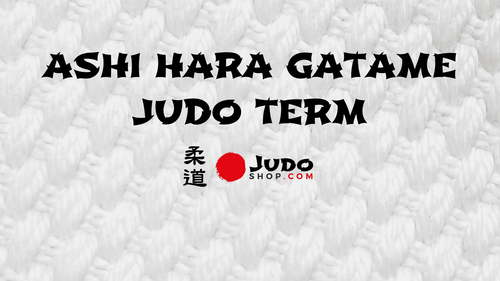
Ashi Hara Gatame - Judo Term Explained
Ashi Hara Gatame is a specialized technique in the martial art of judo, combining leg control, abdominal pressure, a...
-
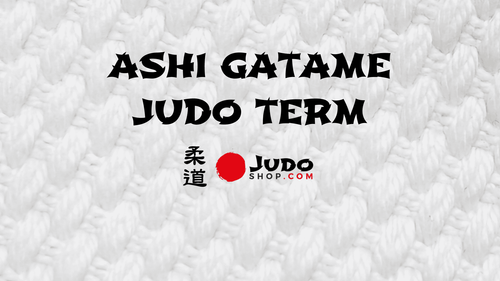
Ashi Gatame - Judo Term Explained
Ashi Gatame is a Judo technique referring to a kansetsu-waza (joint lock) where one uses their legs to immobilise ...
-

Judo Olympics 2024: Highlights, Athletes, and Schedules
Judo Olympics 2024 enthusiasts, mark your calendars! From July 27 to August 3, the Grand Palais Éphémère near the Eif...
-
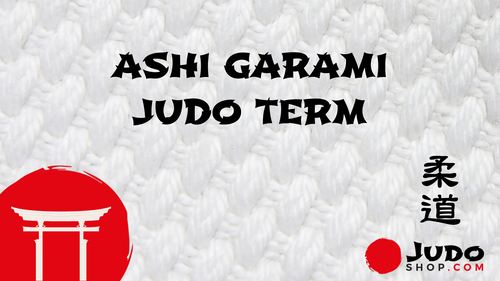
Ashi Garami - Judo Term Explained
What does "Ashi garami" mean in Judo? "Ashi garami" (足緘) is a Japanese term used in Judo that literally translates t...
-
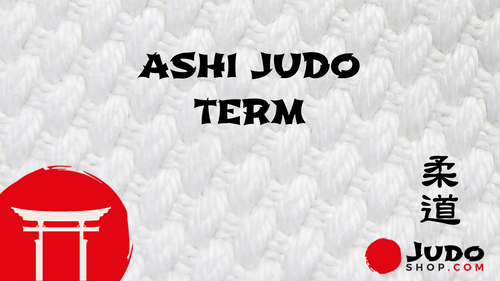
Ashi - Judo Term Explained
Ashi is term in Judo, referring to a leg or foot and category of judo techniques designed to unbalance and throw an ...
-
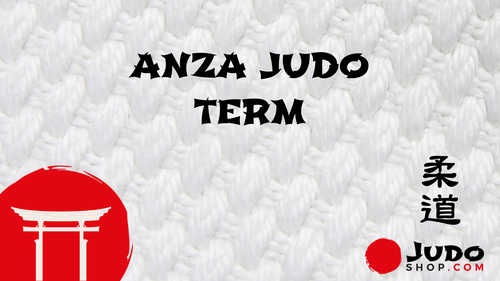
Anza - Judo Term Explained
The term Anza in Judo (安座) embodies a significant practice beyond merely sitting; it signals a deep respect and disc...
-
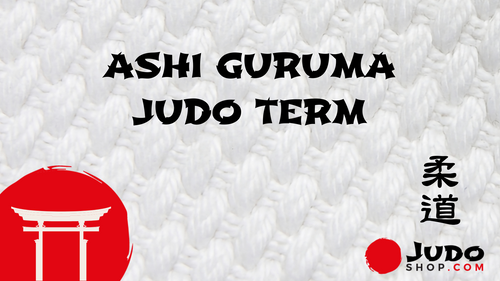
Ashi Guruma - Judo Term Explained
Ashi Guruma is a Judo term rooted in the martial art of Judo, which translates from Japanese as 'leg wheel'. This ju...
-
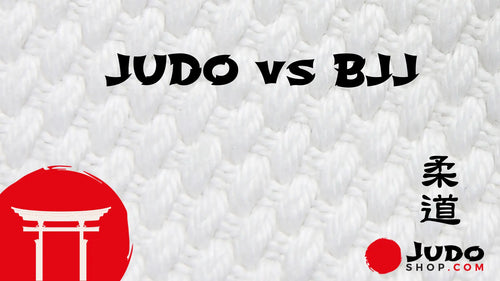
Judo vs BJJ? Of course Judo! Judo is better!
Welcome to Judoshop.com, the premier destination for judo enthusiasts worldwide. Here, we cater to beginners and vet...
-
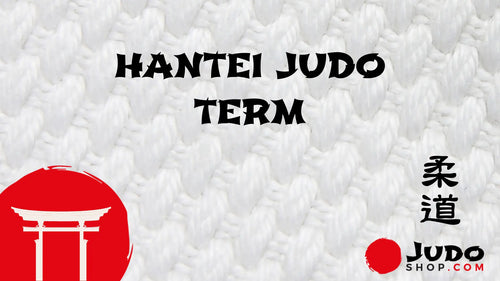
Hantei Judo Term Explanation
Contrary to popular belief, the term 'Hantei' in Judo is not just a simple decision-making process. It holds the p...
-
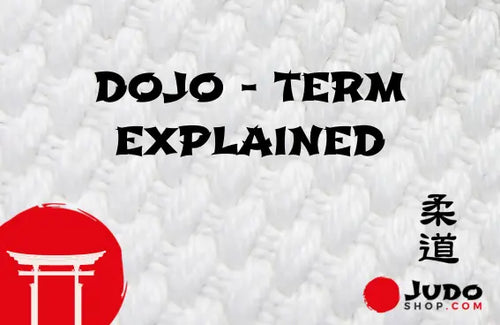
Dojo Meaning (updated 2023)
Dojos, places of immersive learning and meditation, hold great significance in martial arts. Derived from the Japane...
-
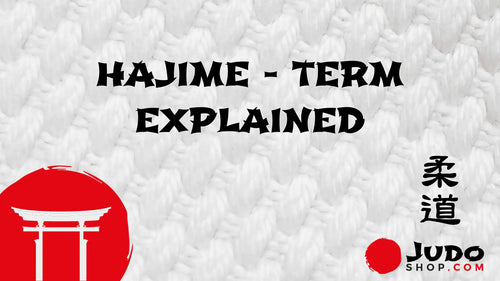
Hajime - Judo Term Explained
Ready to learn about Hajime in judo?It's all about using throws, pins, and joint locks on the mat. With the command ...
-
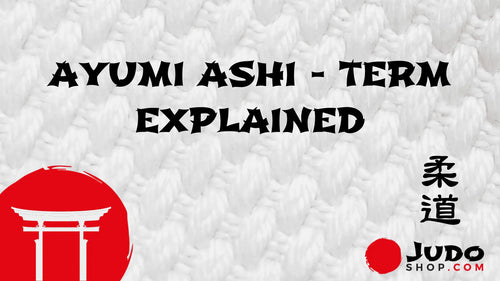
Ayumi Ashi - Judo Foot Work Explained
Are you ready to step into the world of Judo and master the art of Ayumi Ashi - 歩み足? This fundamental footwork techn...
-
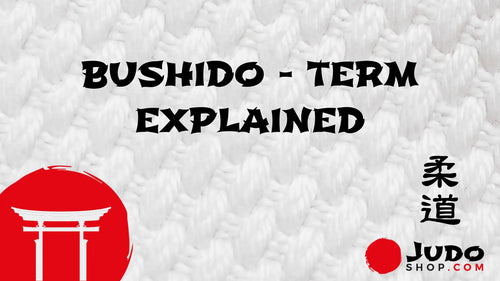
Bushido Explained
Bushido, the traditional code of ethics followed by samurai warriors in feudal Japan, is a subject that fascinates ...
-
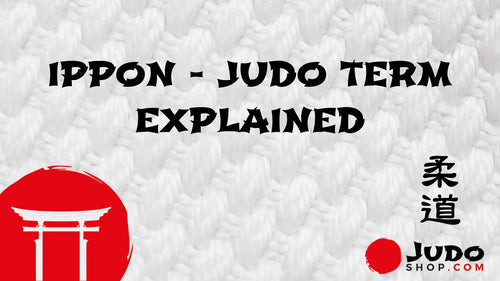
Ippon - Judo Term Explained
Imagine stepping onto the mat and feeling the adrenaline rush through your veins. In the world of judo, one ultimate...
-
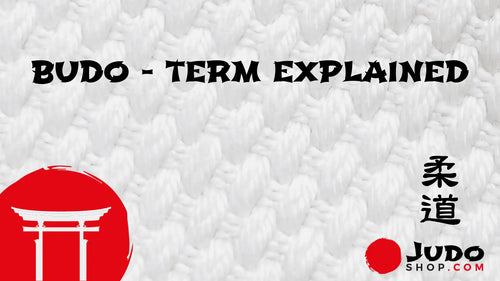
Budo - Term Explained
In a world full of chaos and conflict, one finds solace in the ancient art of budo. Contrary to popular belief, budo...
-
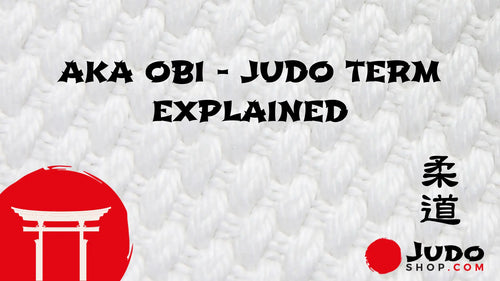
Aka Obi - Judo Term Explained
The aka obi, a red belt worn in Judo, is a prestigious symbol of expertise. Typically reserved for those holding a 9...
-
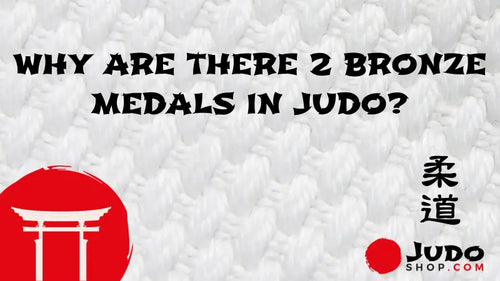
Why Are There 2 Bronze Medals In Judo
Judo is a unique sport that gives two bronze medals in each weight class. Many people wonder why this is done. To fi...
-
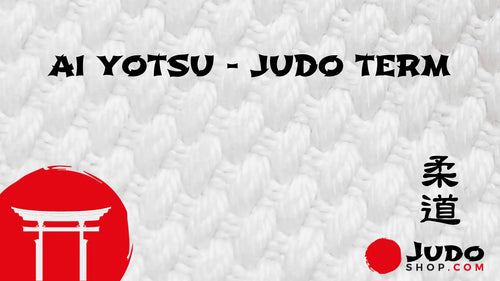
Ai Yotsu - Judo Term Explained
In the world of Judo, a term holds immense significance - Ai Yotsu. This grip, characterized by an intense and intim...
-
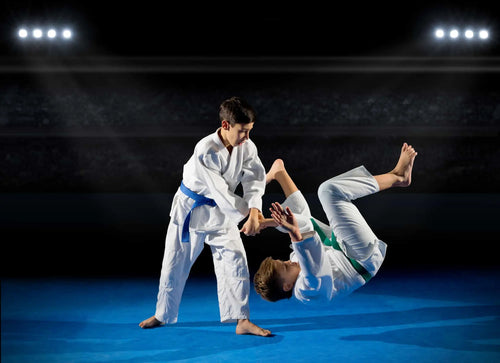
Is Judo Dangerous - Unveiling the Shocking Truths Behind this Ancient Martial Art
With its powerful throws and complex grappling techniques, one might wonder, "Is judo dangerous?" Yes, judo can po...
-

Is Judo The Toughest Sport - Unraveling the Grit and Grace of the Gentle Way
Judo, known as the Gentle Way, may seem like a paradoxical name for a sport, but don't let that fool you. While Ju...
-

Judo Terms - A Complete List of Judo Terms
Judo terms are the foundation of this martial art, and our collection is here to help both new and experienced judok...
-

English to Japanese Kanji and Hiragana translations
Are you looking for an English to Japanese Kanji translation? Here you can find more than 30 examples of Kanji and ...




























